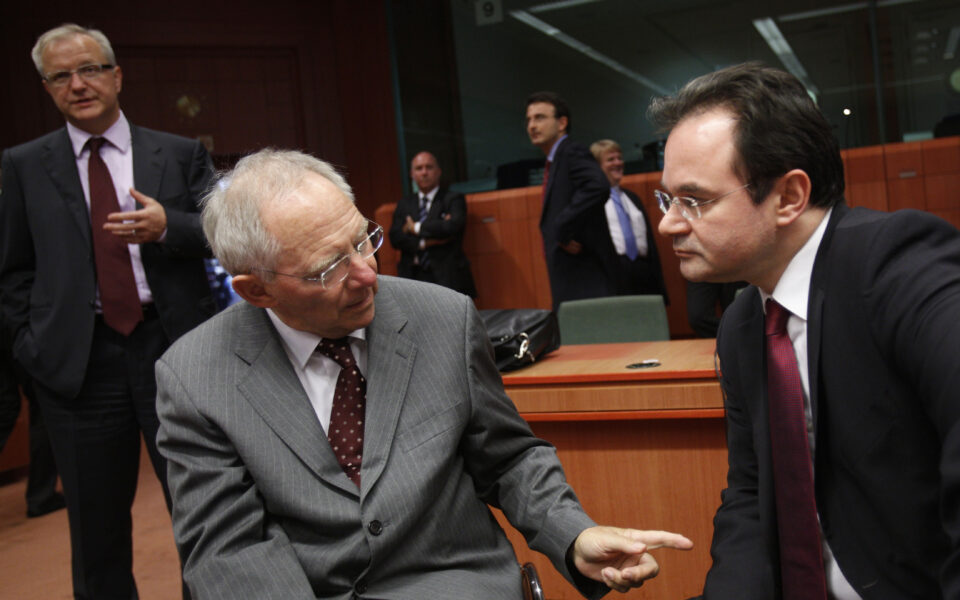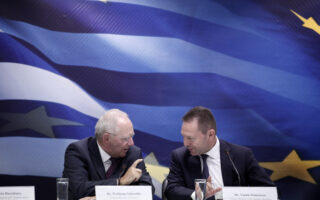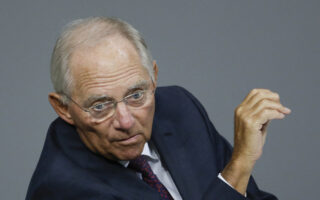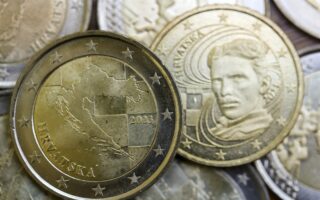Europeanism of a German cut

Wolfgang Schaeuble assumed the role of Germany’s finance minister in late October 2009, and served in this capacity for a full eight years. During his tenure, he collaborated, beginning with my own appointment a few weeks earlier, with nine successive Greek finance ministers. This observation alone serves as a clear indication of the impact he had on the eurozone and Greek crises.
In the Federal Ministry of Finance, Schaeuble brought the background of a German jurist, with its associated commitment to stringent rules, coupled with the pragmatism of a politician who had only reluctantly accepted the role of being second in command. Together with these, at the Eurogroup and Ecofin, he brought an undeniably European perspective, albeit of a German cut. This perspective was articulated through the weight of Germany’s status as eurozone’s largest economy and Schaeuble’s own seasoned political experience as a member of strongest government in Europe.
From this position, Schaeuble had to quickly confront the outcomes and contradictions stemming from the imperfect architecture of the eurozone, itself largely a result of Germany’s own obsessions during the creation of the common currency: among others, strict adherence to the stringent provisions of the Stability and Growth Pact, the “no bailout” principle for other EU member-states in the EU Treaty, and the rejection of the European Central Bank’s role as a true “lender of last resort.”
When faced with the complete derailment of the Greek fiscal situation in 2009, Schaeuble initially sought a solution within the confines of the existing paradigm. He framed the problem as solely a Greek one, requiring an exclusively Greek resolution, based on a large dose of austerity. During this initial period, Germany downplayed the systemic risk of the Geek crisis to the entire eurozone, adopting an overly political wait-and-see approach, with a keen focus on the domestic German political scene, at a significant cost to Europe as a whole.
As the inadequacy of this policy became evident in the first quarter of 2010, a second phase ensued. Schaeuble at that point successfully convinced the German chancellor of the imperative to support Greece and later other countries through institutional improvisations that however allowed Germany to continue swearing allegiance to the European economic governance rules in place. This required, on the flip side, extremely harsh support conditions designed to convince the skeptical German electorate of the “necessary evil” of intervention and, ostensibly, to dissuade other countries from following in Greece’s footsteps.
During this period, German policy also made another error by consistently and publicly warning that Greece could be expelled from the eurozone if it failed to adhere to the prescribed program. The consequence was the rapid withdrawal of political support by the markets for a program that did not include any debt restructuring. Schaeuble eventually recognized this and executed a 180-degree turn, pressuring the ECB to agree, initially to a “reprofiling” (extension) of outstanding Greek bonds and ultimately to a substantial Greek debt “haircut” of approximately 50%. Another taboo was thereby broken.
This brings us to the final period, 2015. The goodwill shown in the initial days toward Greece and its efforts, always tempered with a significant degree of mistrust, had now fully transformed in the mind of the German finance minister into a conviction that Greece “does not want to and cannot” stay in the euro. The cumulative mistakes made on the Greek side certainly played a significant role in this shift. Hence, the formalization of the proposal for a “temporary” Greek exit from the eurozone made in the summer of 2015, which had already been informally offered as early as 2011. But the roles were by now reversed: The chancellor was no longer swayed by her finance minister; she considered the potential cost of an exit greater than its deterrent effect, ultimately placing herself on the right side of history.
——————————————
George Papaconstantinou is a former minister, a professor and dean of Executive Education at the European University Institute.





